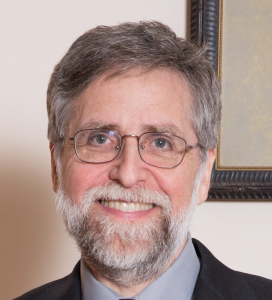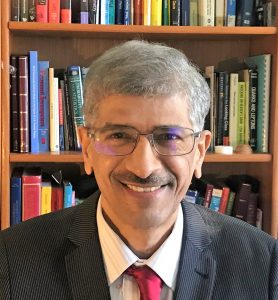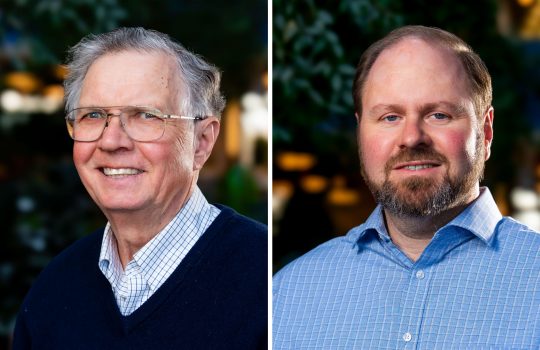The American Association for the Advancement of Science has elected Fermilab scientists Robert Bernstein and Chandrashekhara Bhat as 2021 AAAS fellows. A lifetime distinction, an election as an AAAS fellow honors members whose efforts on behalf of the advancement of science or its applications in service to society have distinguished them among their peers and colleagues.
Bernstein was honored “for distinguished contributions to experimental particle physics, particularly to the study of neutrinos and muons, and to the design and construction of experiments to investigate charged lepton flavor violation.”
Bernstein came to Fermilab in 1987 as a Wilson Fellow. A former co-spokesperson of the NuTeV experiment, for which he designed the beam and was subsequently made an American Physical Society fellow, he is now a co-spokesperson of the Mu2e experiment, as well as a co-convener of the Snowmass particle physics community planning exercise. Bernstein was also recently elected as councilor of the APS’ Division of Particles and Fields, a position he holds through 2025.
Two Fermilab scientists were recognized for distinguished contributions to the field of physics: experimental particle physics and accelerator physics, respectively.
Bhat was recognized “for distinguished contributions to the field of accelerator physics, particularly for new methods for manipulating the phase space of particle beams and increasing their intensities at high-energy accelerators.”
Bhat received his doctorate in nuclear physics from Bangalore University, India. Prior to coming to Fermilab, he worked as a scientific officer at the Cyclotron Lab at Eindhoven University of Technology, the Netherlands. He then was an assistant research professor in nuclear physics at the University of North Carolina at Chapel Hill. Bhat joined Fermilab in 1988 as a research associate in the lab’s Accelerator Division. He has since conducted research on the Antiproton Source, Main Ring, Main Injector, Recycler Ring and Booster. From June 2010 to January 2013, he was a visiting scientist at CERN under the US-CERN LHC Accelerator Research Program. His research in recent years has focused on increasing beam intensity in the Booster toward producing megawatt beam power on neutrino targets.
Fermi National Accelerator Laboratory is supported by the Office of Science of the U.S. Department of Energy. The Office of Science is the single largest supporter of basic research in the physical sciences in the United States and is working to address some of the most pressing challenges of our time. For more information, please visit science.energy.gov.



